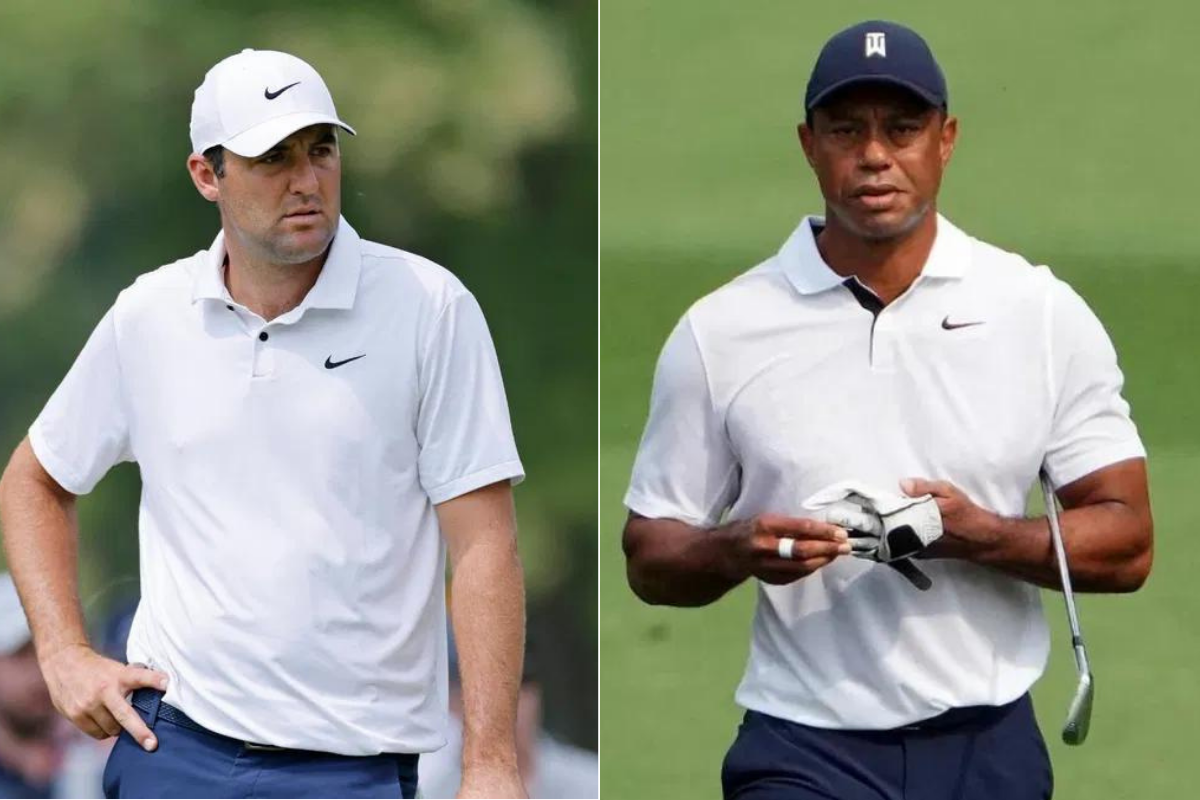
Imago
Image Credits: IMAGO

Imago
Image Credits: IMAGO
Scottie Scheffler’s rise isn’t just about trophies; it’s his calm, focused mindset that stands out. His The Open win confirmed his elite status, but his grounded approach is what earns respect. As journalist Bob Harig notes, he’s following a path Tiger Woods and Rory McIlroy walked too: steady, process-driven, and often underappreciated.
Watch What’s Trending Now!
In a recent episode of the 5 Clubs Podcast on Golf Channel, Gary Williams was joined by Bob Harig, who is a well-known journalist for Sports Illustrated. Harig was asked to reflect on Scheffler’s approach while addressing the media, highlighting that he narrows it down to stay in the present and doesn’t discuss the past or the future projections of himself. “You know, look, I think Tiger was a lot like that,” Harig said, when asked if he had covered players who, like Scheffler, stayed grounded during media interactions.
“Tiger wasn’t into big celebrations, and you know, he was in the moment. And you know, the amazing thing about him is even after he won, he was in the moment. He was thinking about the next one. And I’m not sure that we appreciate that, that much,” he added. Harig suggested that even with all the accolades Tiger Woods received, this specific trait—the ability to treat every tournament with equal hunger—was never fully appreciated. He also added that Woods didn’t treat any tournament differently, be it even majors, and he wanted to win everything. “So, I think Tiger had a lot of that,” Harig added, hinting at Woods’ qualities like Scheffler.
Bob Harig also pointed to Rory McIlroy as another example of a player whose introspective and measured approach mirrors what fans now praise in Scheffler. “I think Rory has been that way. He’s been very giving in that regard,” Harig noted. Despite McIlroy’s recent battles with the media, he pointed out that they are outliers and don’t reflect McIlroy’s usual demeanor — “You know, these last issues that came up where he didn’t want to deal with the media, I think are sort of a they’re sort of an outlier.” While McIlroy has skipped media duties recently, Harig pointed out that even Woods had several instances where he didn’t want to talk to the media. Harig also pointed out on the podcast that, regardless of all these factors, the best players keep it about the moment — “But for the most part, I think the best ones really do keep it about the moment, they’re not moving too far ahead.”
Humility is discouraged in sports today. Everyone is encouraged to promote themselves and grab as much attention as possible to get as many endorsements as possible. Meanwhile, Scottie Scheffler is the best golfer on the world and can’t stop talking about how normal he is, how… pic.twitter.com/j1FdM3U5em
— T.J. Moe (@TJMoe28) July 21, 2025
While Scheffler’s steady brilliance has become one of the sport’s most admired traits in recent times, Harig’s comments serve as a reminder that Tiger Woods and Rory McIlroy were doing the same thing, just in different times and under different scrutiny. While Harig drew compelling parallels between the players, he didn’t stop there. He went on to highlight several other qualities that make Scheffler not just a great player, but a truly rare competitor in today’s game—traits that, in Harig’s view, are quietly shaping one of the most impressive runs in modern golf.
Scheffler’s traits that set him apart
Harig made it clear that Scheffler’s focus is on the journey, not the destination — “He’s pretty much into the shot-by-shot mantra and is kind of, you know, he wakes up every day with the idea of just enjoying the pursuit of practice and getting better.” What Harig finds especially compelling is that Scheffler doesn’t seem motivated by numbers or records. “He just wants to do the best he can every time. And that’s what makes it kind of remarkable,” he said. That daily grind mentality that players like Sepp Straka want to replicate, free from ego or public goals, mirrors the mindset of all-time greats like Woods, only with a more subdued public profile.
Scheffler also doesn’t buy into the pressure of crafting a public-facing narrative. Unlike many modern athletes who chase legacy with big statements, “He doesn’t seem to have goals. He doesn’t seem to have like ‘I want to win x number of tournaments or x amount of money’. He just wants to do the best he can every time.” He continued to say that it also doesn’t seem to take too long for Scheffler to turn things around. While he does get frustrated when he doesn’t contend, he bounces back almost immediately. “You could see it bothered him that his game was off at Oakmont. Couldn’t figure out the driving quite as much, and you know, it didn’t take him long to get it turned around,” Harig said, hinting at Scheffler’s 3-over opening round at Oakmont, but he still managed to finish tied 7th. That emotional resilience is a hallmark of champions—and perhaps Scheffler’s most underrated skill.


